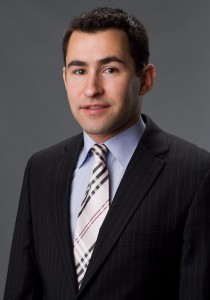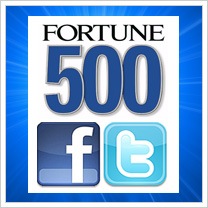PerkettPR is very excited to enter 2012 with a great new interview in our “Persuasive Women” series. This new interview is with someone we truly admire, Ann Handley. Ann is a 12-year veteran of creating and managing digital content.
Ann is the Chief Content Officer of MarketingProfs, which provides marketing know-how for business people through a full range of online media, and the co-author of the best-selling Content Rules: How to Create Killer Blogs, Podcasts,Videos, Ebooks, Webinars (and More) That Engage Customers and Ignite Your Business (Wiley, 2011) (www.contentrulesbook.com).
Previously, she co-founded ClickZ.com and was a journalist for the Boston Globe as well as a writer and editor for a host of other publications, including those magazines in the back pockets of airline seats.
Currently, she writes for MarketingProfs as well as its blog, the MarketingProfs Daily Fix , a blog in the top 20 of the Advertising Age Power150. She can also be found at the Huffington Post , American Express OPEN Forum, and her personal blog, Annarchy. She also writes a monthly column for Entrepreneur magazine. On Twitter, she has more than 100,000 followers @marketingprofs.
What motivates you to get out of bed every day?
Actually, Instagram motivates me BEFORE I get out of bed. I typically check the photo-sharing social network while I’m still lying prostrate — I love the network’s visual storytelling capabilities, which only reminds me how awesome content is, which only reminds me how awesome relationships with content creators are, which only reminds me how amazing the rest of my job is, which only reminds me that I need coffee….
What keeps you up at night?
Pretty much anything. I don’t sleep well.
But here goes….
What keeps me up at night professionally: My sincere regret that more companies don’t see the full, robust, incredible, awesome potential of content! That more companies don’t see their content and online publishing efforts as the cornerstone of their marketing, but instead bolt it onto existing efforts in a freakish, unattractive way.
Also professionally: When I have a big speech coming up — like I do now next month in Kansas City — I’m fretting about that in the middle of the night. In a healthy way, probably (the nerves motivate me to do my best). But it’s fretting, nonetheless. (Oh and by the way, you should come.)
What keeps me up at night personally: I admit I’m a worrier. I worry about my college-aged kid, who lives in an iffy neighborhood near his school. I worry about my daughter, just because I’m a mother. I worry about global warming and the polar bears. I occasionally regret having the second burrito at dinner. How much room do we have….?
I’m kidding.
Sort of.
What’s one sentence or phrase you find yourself using all the time?
“Solve or share, don’t shill.” It’s the mantra I repeat ALL. THE. TIME. to companies looking for a bottom-line guide to their content strategy. And I like it because it sums up — in five simple, alliterative words — what should guide the content you produce. Another way of saying that, is: “Put the needs and wants and perspective of your customers first.” But that’s not nearly as memorable.
Secondly, I find myself quoting Nicki Minaj’s “Super Bass” liberally these days, just because I’ve had the song stuck in my head for weeks now. (This is what happens when you carpool teens around.) But that can get awkward in certain circles. So I don’t think I’ll mention that here.
How has your life changed from five years ago to today? Where do you hope to be five years from now?
I’m five years older. So there’s that. Also, as Content moved center stage with marketers, I found I actually had something to say! So I wrote a book, “Content Rules” with C.C. Chapman. That has been a rewarding, rich experience in so many ways: It has opened up new and interesting doors, and in it I found a great friend (and “wubby” [work hubby]) in C.C.
More generally, I also like the perspective I have now, which I didn’t have a few years ago. Despite what I said above about worrying — I don’t take things as seriously as I once did. I have more fun in my life and work, and I’m grateful for my awesome kids, my wonderful man, my rewarding social relationships, and my work at MarketingProfs for creating the path to that.
Where do I hope to be? Sheesh. I always have trouble with prognostications. But if I’m as happy as I am now… I’m good. If content is front and center for Marketing, then I’m really good. If everyone here reading this is still caring about what I have to say in five years — if I feel more connected to people and not less, so — well, that would be something, wouldn’t it? (I told you I’m terrible at crystal-ball gazing.)
When was the last time someone inspired you?
I’m inspired every day by the people around me creating and curating content via Instagram, Pinterest, Twitter, and the like. I’m inspired by my colleagues at MarketingProfs to do more things, to push harder, to be more. I’m inspired by people who take chances, who try new things, who leap into the unknown — like friends who start companies and make changes and do other things than I can’t list here.
But generally, I’m inspired by honesty: People who do things that they are driven to do, that rings true for them, that they are compelled into. Relationships that are real. Companies that create stuff which is truly a mirror of the soul of who they are, or who they want to be. I love that. And I find it incredibly rewarding and inspirational. I want to steep in it. I want to fill some social hot tub with it and sit in it for a good, long time.
When was the last time you got pissed off?
(LOL — this is only time I’ve ever been asked this question — and I love it!)
I got really ticked a few hours ago at my (teenage) kids, who appear allergic to any sense of order in the family room. Seriously? That laundry basket of clothes has needed folding for a week. The bowl of grape stems on the entertainment center?!
Am I your housemaid? THAT. PISSES. ME. OFF.
I probably should come up with something more broadly appealing or more profound — certain candidates surging in the polls do not thrill me — but you asked “last time,” so parents out there: Can you relate?!?!?
What was the last thing that made you laugh so hard you cried?
Tina Fey’s Bossypants. If you haven’t read it, I can’t imagine why not. You will pee your pants. (If you’ve had kids. If you haven’t, you’ll just laugh.)
How does your personal brand influence your job? Or are they one and the same?
I can’t say I fully understand what the term “personal brand” means. Possibly I’m not sophisticated enough. Here’s how I see it: I am who I am online, and sometimes I represent the brand I work for (MarketingProfs). I don’t change who I am because of that, although I probably modify my behavior a bit (as in: I don’t swear, or I don’t get too personal). So I guess the short answer is that they are pretty closely aligned.
How do you manage your role at MarketingProfs, your personal brand and the rest of your life so smoothly? What’s your secret?
I don’t think there is a secret, really. I love my job. I love the rest of my life, too. I guess my secret is that I don’t fake it. But is that a secret? I can’t imagine so — it just is.
I think — as in most things in life — relationships are key to everything. I do well on social networks because I truly value the relationships I build there. I treasure my personal relationships. I value my friends. This isn’t groundbreaking, I’m sure. But it makes my life worth living.
Can you share your favorite work tools for collaboration, productivity, or organization?
MarketingProfs is a virtual organization. So Skype is a connectivity and productivity and collaboration tool. As is Basecamp. As is Dropbox.
I also like our Team ‘Profs private Facebook group, along with a handful of other private groups I belong to that allow me to check my sanity and deepen relationships. See above.
What’s next for you in 2012?
The paperback edition of Content Rules comes out in the spring. MarketingProfs continues to grow and morph. I’m celebrating my one-year anniversary as a columnist for Entrepreneur magazine (http://www.entrepreneur.com/author/1726). Otherwise? I think I said I was terrible at looking ahead….
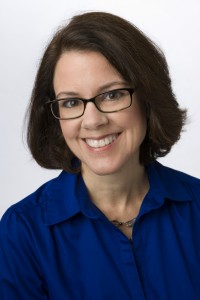


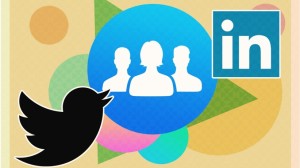

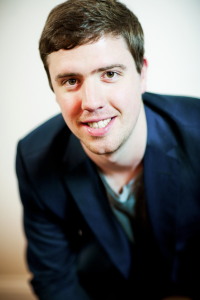 This week’s “Effective Executive” interview is with Eliot Buchanan, Co-Founder and CEO of
This week’s “Effective Executive” interview is with Eliot Buchanan, Co-Founder and CEO of 



